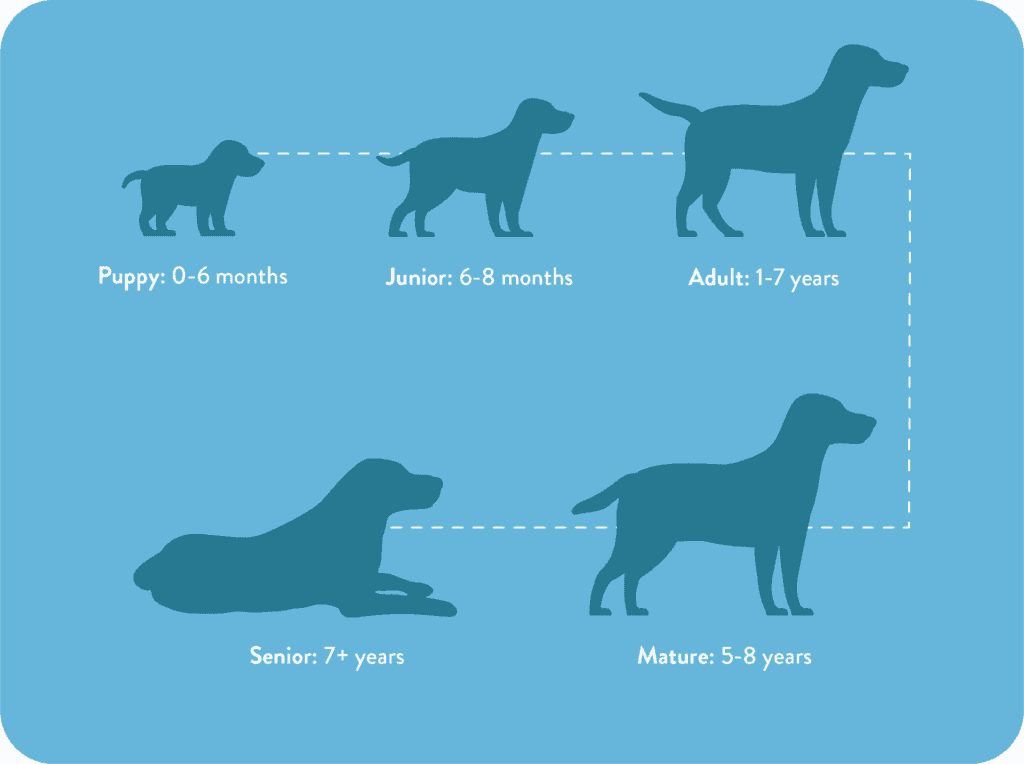Feeding
There are numerous foods available for dogs – it can be difficult to know what is best for your four legged friend.
Life stages of dogs

Feeding through the stages
Gradually introduce your puppy to kibble over a week by mashing a little down with hot water to create a paste and cooling to room temperature. Gradually add less water until your puppy is eating the dry kibbles.
Always feed the recommended amount on pack. Over-feeding puppies may encourage an acceleration in growth, which can cause skeletal abnormalities where joints are not formed correctly. For example, osteoarthritis and hip dysplasia.
We know that puppies love food! So make sure you keep an eye on how fast they consume it! When dogs eat too fast, they can gulp down excessive amounts of air, causing expansion of the stomach and increasing the chances of bloat.
Follow the on-pack guidelines to ensure you are feeding the correct amount for the weight of your puppy. There should always be plenty of fresh clean water available for them to drink.
A complete puppy food should have:
• Smaller kibble for puppy-sized mouths and to make eating and digestion easier.
• A high level of digestible proteins (around 32%) to assist growth and muscle development.
• Extra calcium for strong bones and teeth.
Foods to avoid

Don’t forget to take treats into account when you’re working out how much to feed your dog each day!
Wir empfehlen
Harvey, the Golden Retriever
“After trying several dry dog food brands for my Golden Retriever with his sensitive stomach, I tried Burgess Salmon and Rice. At last his stools have settled! He loves the food – I’m so happy and so is he! Thank you Burgess for a brilliant dog food.”
– Nicola, The Wirral

To help you find the right food for your rabbits have a look at our product range.
Alternatively you can call our free consumer care line on +44 1405 862241 between 9am and 5pm, Monday to Friday. Our dedicated team of experts will help you make the right choice.
If you should have any concerns about the health of your rabbits, always consult a vet.

